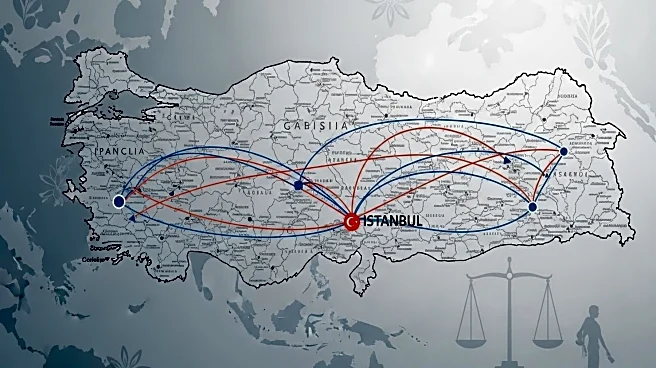What's Happening?
Turkey has emerged as a key player in facilitating trade with Russia despite extensive international sanctions. The country has developed a systematic approach to legally conduct business with Russia, benefiting economically from this arrangement. Turkey's strategic location and diplomatic history allow it to serve as a conduit for Russian oil and gas exports, which are critical to global energy markets. This has been achieved through various means, including blending Russian and non-sanctioned fuels, using ship-to-ship transfers, and leveraging Turkey's shipping and banking sectors.
Why It's Important?
Turkey's actions highlight the complexities and challenges of enforcing international sanctions. While sanctions aim to pressure Russia economically, Turkey's involvement demonstrates how countries can find legal loopholes to continue trade. This situation underscores the need for more robust and coordinated international efforts to enforce sanctions. Additionally, Turkey's role in the global energy market is significant, as it provides an outlet for Russian exports, impacting energy prices and supply chains worldwide.
Beyond the Headlines
Turkey's balancing act between Western alliances and its relationship with Russia reflects its broader geopolitical strategy. By maintaining ties with both sides, Turkey enhances its strategic leverage and economic opportunities. This approach, however, may strain its relationships with Western allies, particularly if perceived as undermining sanctions. The situation also raises questions about the effectiveness of current sanctions regimes and the potential need for new strategies to address such challenges.









